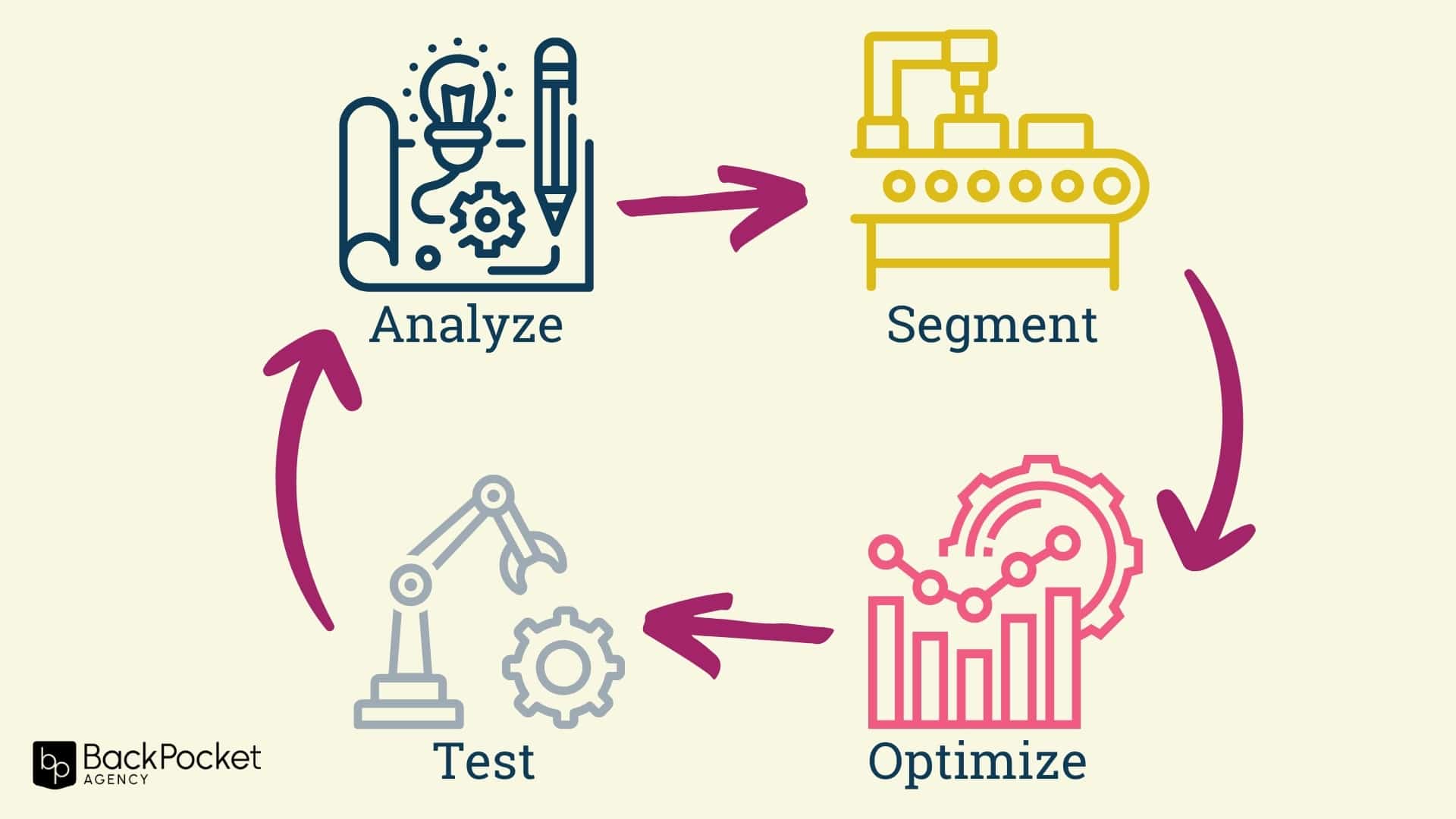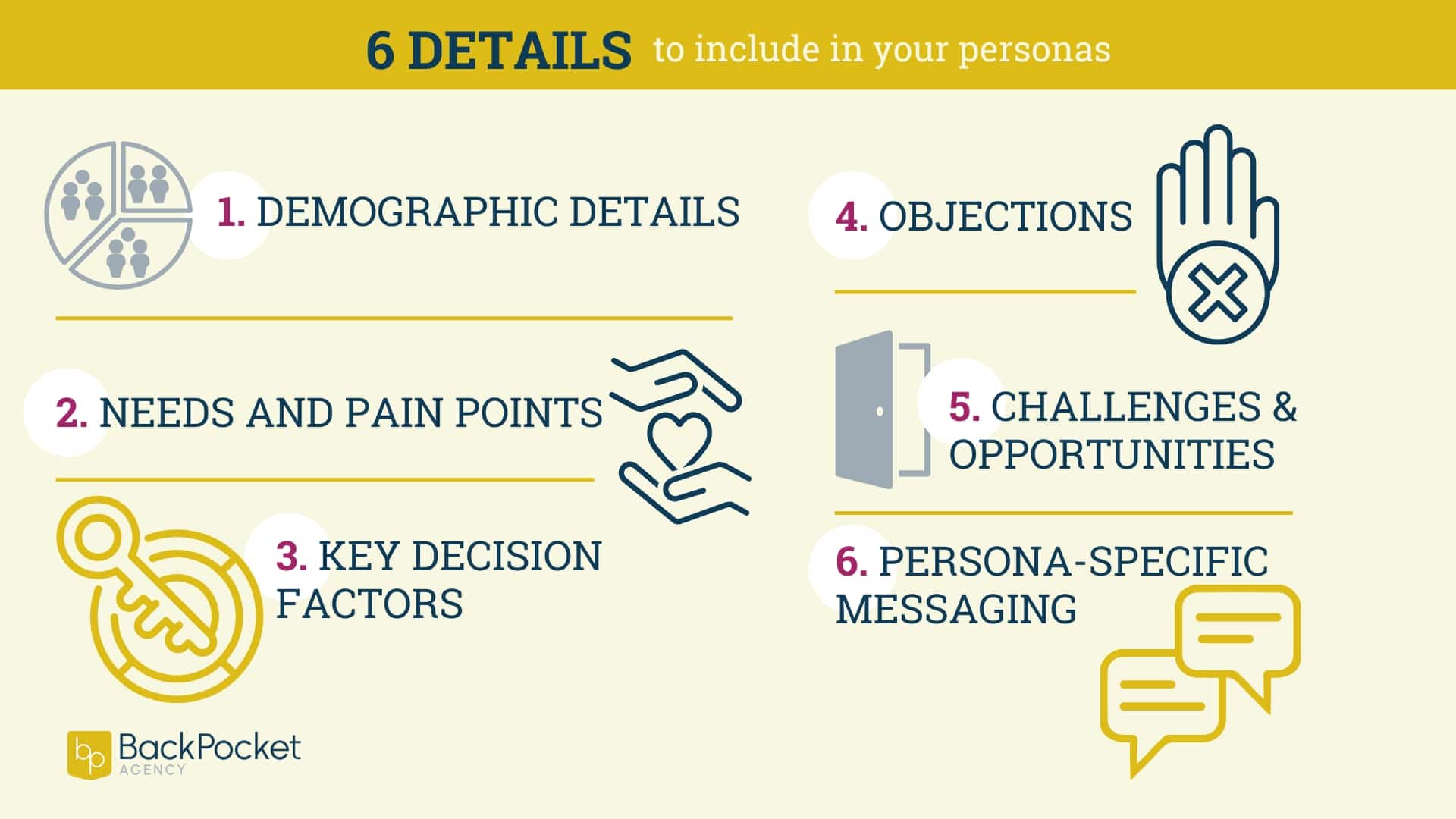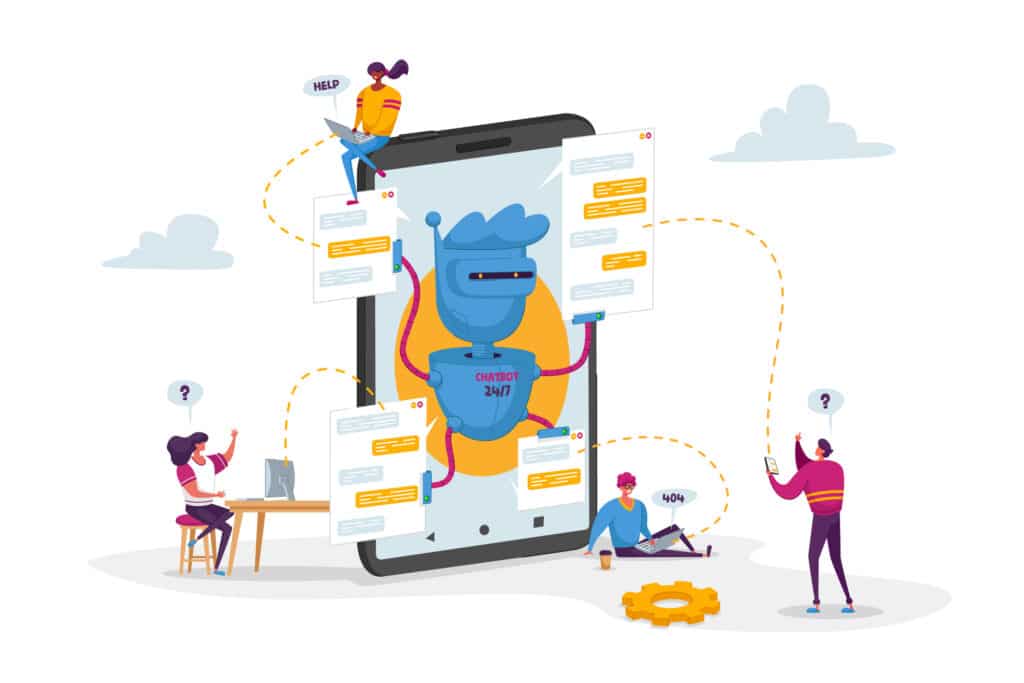How Content Marketing Can Help Small Businesses

There’s no sugar-coating it: When you’re operating a small business, it’s next to impossible to match — or even come close to — the ad spend of larger organizations with big budgets. One area where you can keep pace? Content marketing.
Content marketing is a strategic approach that involves creating and sharing valuable, relevant content tailored to a specific target audience. “It’s not about serving up ads all about your business,” says Michelle Jackson, Chief Strategy Officer, BackPocket Agency. “Instead, it’s about meeting your audience where they’re at by delivering valuable and inspiring information that answers their questions, addresses their pain points, or connects with them in a meaningful way.“

Big ad budget competitors got you down? Content marketing to the rescue!
Keep showing up with content that actually helps, and you’re not just another business — you’re the go-to expert. Sound intriguing? It all starts with a sound content marketing strategy.
How to Create a Content Marketing Strategy for Your Small Business
Want to know the fastest way to waste time and money? Creating content without a strategy. Before you crank out blog posts or social media updates, you need a plan that delivers. Without a solid strategy, you risk two things:
- Wasting precious time and resources on a lot of disjointed content created in siloes.
- Creating content that doesn’t align with organizational goals and doesn’t drive results.
Your content strategy is your game plan, identifying your target audience, the type of content that will resonate with them, and how you will distribute that content to achieve your goals. If you partner with an agency that provides turnkey content marketing services, they can help you develop and implement a custom strategy that is unique to your business. They’ll work with you to:
1. Define your goal
- What’s your mission?
- Do you want to establish thought leadership in your industry?
- Do you want to gently nurture leads through their buyer journey?
- Do you want to gain new leads in a certain market?
All of the content you create will keep those goals front and center.
2. Understand your audience
- Who are your customers?
- What do they like and engage with?
- Where do they consume content?
Analyzing your target audience helps increase the chance for your content to be successful.
3. Choose your content channels
Your content strategy should include a thoughtful plan for where you’ll deliver content and how you’ll create it. Don’t spread yourself thin trying to be everywhere. Start with a few key channels that make the most impact. For example, a B2B small business might choose to start with a:
- Blog: Long-form text with complementary short-form video and infographic content.
- E-newsletter: Repurposed text and visual content from the blog.
- LinkedIn: Short-form text, video, and infographics repurposed from the blog, and LinkedIn live video and polls.
- YouTube: Video repurposed from LinkedIn and the blog.
4. Measure content ROI
Your content strategy should include a plan for measuring the success of your content. Key performance indicators might include:
- Pageviews (Are people actually reading?)
- Downloads (Are they engaging?)
- Conversions (Are they taking action?)
- Revenue (Is it driving business?)

Go beyond just measuring content ROI: Measure, segment your audience, optimize based on findings, and test again.
Remember that success will look different to every business, so make sure those original content goals are front and center in your measurement framework.
Best Practices for Content Creation for Small Businesses
“Small businesses with more limited budgets can scale content marketing to their needs,” says Janet Celosia, Vice President, Marketing, BackPocket Agency. “For years, we’ve talked about omni-channel content, and while it’s still important to diversify your content channel mix, small businesses in particular should thoughtfully choose a few channels where they can dedicate the resources and where their audiences are spending time — and set aside the others.”
Keep in mind these best practices for content creation and distribution:
- Maintain a content calendar: A content calendar can help you plan out the content you will create that month — and avoid scrambling to create content in a reactionary way. Build in days for those timely or sudden content ideas. Not only do content calendars keep you organized, but they also give your audience a sense of your schedule and consistency. Download a sample content calendar.
- Make a plan for repurposing content: Content creation doesn’t have to be a one-and-done effort. Save time by making a plan to repurpose content for multiple channels and formats. For example, use related blog posts to create a more comprehensive resource guide, or use a video transcript to create a text-based piece of content.
- Avoid content dead-ends: Every piece of content you create should include a call to action leading somewhere —otherwise, what’s the point? Always include a next step, like:
- Encouraging readers to check out another blog post
- Getting them to sign up for your email list
- Nudging them toward a demo or consultation
- Automate where you can: Automating certain processes can save you even more time. For example, you can schedule blog and social media posts. Just be sure to check in to ensure things are running smoothly and staying fresh!
How to Find the Right Content Marketing Services for Your Small Business
When looking for a partner to deliver content marketing services for your business, you’ll find no shortage of options — so many, in fact, that it’s easy to get overwhelmed. But the right agency is out there — one that fits your budget, needs, and culture.

Me, zooming in on your agency’s actual capabilities — not your awards from 2016.
When vetting a content marketing agency, here’s how to cut through the noise:
- Look at their website for case studies and client testimonials that resonate with you.
- Ask for creative and content samples to see if their work speaks to you.
- Check out their blog or other content channels to get an idea of their experience and expertise.
- Consider third-party websites like Google Reviews and Glassdoor for an idea of an agency’s performance and culture.
“Content marketing isn’t just for big business, and it doesn’t need a massive budget to be effective,” says Joe Stella, CEO, BackPocket Agency. “Any content marketing agency that tells you otherwise probably isn’t the partner you want anyway.”
Is BackPocket the Perfect Fit for Your Small Business?
At BackPocket Agency, we’re not just content creators; we develop comprehensive content strategies that align with your business goals. Our team will guide you through every step of the process, ensuring that your content not only tells your story but also drives measurable results. Partner with BackPocket and let’s create a content strategy that fuels your small business growth. Contact us today to get started!
Michelle Jackson Named WICMA’s Content Marketer of the Year
We’re beyond excited to share that our very own Michelle Jackson, Chief Strategy Officer at BackPocket, has been named Content…
How Our Start-up Agency Broke Into AI Overviews Without Paid Tools
Fresh out of San Diego and the 2025 Content Marketing World, one thing was crystal clear to me (and probably…
The Wild West of Content Optimization: Why I’m All in on AEO and GEO
Over the last six months, I’ve found myself deep in what feels like the wild, wild west of content optimization:…
How to Find the Right Content Strategy Agency
Great content marketing starts with a solid game plan. That’s where a content strategy agency comes in. They don’t just…
How Content Marketing Can Help Small Businesses
There’s no sugar-coating it: When you’re operating a small business, it’s next to impossible to match — or even come…
5-step Content Audit Checklist [With a Template!]
A cornerstone of any powerful content marketing strategy begins with a comprehensive content audit — a deep dive into what’s…
What Content Marketing KPIs Should You Track?
It’s no secret that many people are drowning in data. And for content marketers, too much data is just as…
How to Create a Content Measurement Framework
When it comes to consistent, effective content marketing measurement, the data doesn’t lie. The Content Marketing Institute’s B2B Content Marketing…
Content Strategy vs. Content Marketing
Content strategy and content marketing. You no doubt have heard of them and know that each is essential to helping…
The 7 Steps to Plan a Content Strategy
Your blog started with good intentions. Boost SEO, check. Get more engagement, check. But somewhere along the way, things got…










